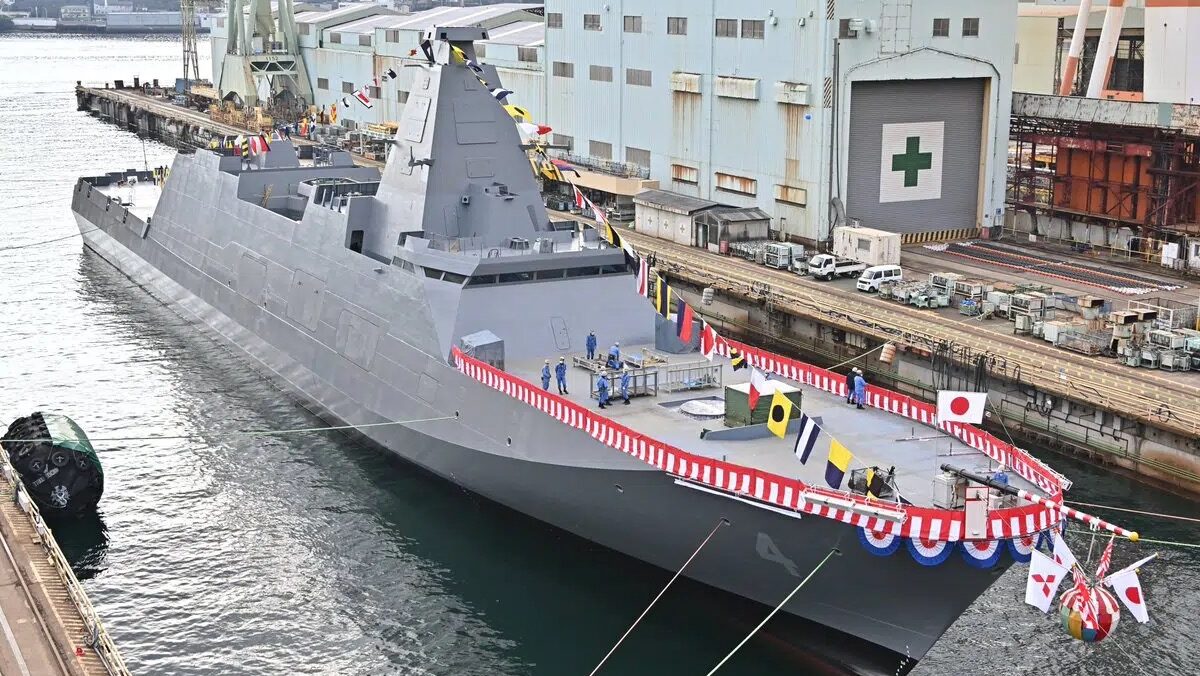Assistant Secretary of the Navy (Financial Management & Comptroller) Russell Rumbaugh delivers remarks at a U.S. Marine Corps Audit Awards ceremony at Marine Barracks Washington, D.C., April 19, 2024. (DoD photo by U.S. Navy Petty Officer 1st Class Alexander Kubitza)
WASHINGTON — For 25 years, the Navy has been laboriously moving all its myriad commands to a single 21st century accounting system known as ERP, Enterprise Resource Planning. This summer, the last major commands began their transition to ERP, the service’s comptroller told a recent conference. When they’re done, sometime in 2026, it will enable not just the service’s first clean audit in history, Russell Rumbaugh said, but an explosion in cutting-edge applications of big data analytics.
“Getting into those modern financial systems will make us auditable and will just unlock the power of data,” Rumbaugh told Breaking Defense. Instead of having data scattered across multiple, incompatible, systems, ERP will handle “every single transaction,” he explained, and “the better your input is, the better output will be. … Having clean data makes every single data analytic you do better.”
It’s been a long and arduous journey to get to this starting point. “We started ERP, which is the Navy’s big financial management system, 25 years ago,” Rumbaugh told the Potomac Officers Club Navy Summit last week. “We are just now starting migration of our last big commands [Pacific Fleet, Fleet Forces Command, and Reserve Forces Command]. They will be fully in our modern system in 2026.”
RELATED: Becoming ‘data fluent’: Navy rolls out updated ‘Information Superiority Vision’
“Everybody’s excited about the potential for data analytics,” Rumbaugh told Breaking Defense in a follow-on interview after his conference remarks. While his team is already using analytics to great effect where they can within the limits of the Navy’s existing systems, he said, “at the end of the day, we have to get clean data in modern systems” — and that means ERP.
ERP is understandably exciting for veteran budgeteers like Rumbaugh, who’s spent his career working on defense spending in Congress, the Pentagon and academia, and who describes the audit as one of “my true loves.” But it should also open the doors for data scientists, software vendors and anyone interested in more efficient management, he said, because ERP will provide a single, consistent and up-to-date set of data on everything the Navy pays for.
Currently, Rumbaugh told the conference, all sorts of vendors come to him offering elaborate data visualization dashboards and other cutting-edge management tools, but “the whole time I would sit there, [thinking] our data isn’t in any shape to display that.”
Accountable, Not Auditable
A crucial caveat is worth noting in all discussions of Defense Department audits. It’s not that the Navy or other Defense Department organizations are missing a lot of vital data — let alone that they have somehow lost track of entire warehouses full of billions of dollars of weaponry and spare parts, as is often implied by stories about the audit problem.
The data is all there, somewhere. It’s just buried in disparate systems, run by different organizations for different purposes, so getting the answer to any particular question involves time-consuming trawling through various records. In essence, DoD is what accountants call a “shoebox client,” someone who never throws away their receipts but never properly organizes them either, so they show up at tax prep time with a shoebox full of crumpled slips of paper.
“DoD is very accountable, it’s just not auditable,” Rumbaugh told the conference. “We know where the things that go ‘boom’ are, we know where the dollars get spent, [but] to answer those questions, we have to go ask a bunch of stovepiped systems.”
In stark contrast to commercial accounting, DoD data systems are geared to answering questions from Congress, not investors or auditors. Rumbaugh’s comptroller teams have great access to data on how much Congress has appropriated for various Navy functions and how much of that money the Navy has actually put on contract (“obligated”), but they have to ask separate offices to query separate systems to see whether those obligated funds actually got paid out, when and how. What actually happened to any goods or services bought with those funds — who used them, where they’re stored, what’s expended and what remains — is often tracked in yet other systems by yet other organizations.
Savvy data scientists and expert bureaucrats can kludge these systems together and get great results on a case by case basis, Rumbaugh said. “I love my data analyzing teams. I think they do great,” he told Breaking Defense. Using the Navy’s Jupiter system, part of the DoD-wide Advana, he told the conference, they’ve even “clawed back about half a billion dollars in unspent funds” that could be used for more urgent purposes.
But these current data efforts are “ad hoc,” he went on. That means each one takes “a huge amount of manual labor,” he said, instead of being able to automate common tasks so users can get the updated answer at the push of a button. That lack of repeatability also tends to “freak out” outside auditors, he said, who expect every single transaction to be done the same way, to strict and rigorous standards.
Moving all the Navy’s commands to ERP will finally solve the repeatability problem by having all the financial data in one system, in one format, that tracks dollars across the entire life cycle from congressional appropriation to contractual obligation to payment to the contractor.
In effect, ERP will put the data “in a straitjacket,” Rumbaugh told Breaking Defense, by enforcing the kind of machine-like repeatability and rigor that are required, both for the audit and for analytic algorithms. “It puts us in a modern financial system where you just can’t fudge it anymore,” he said.
The transition won’t be easy, he admitted to the conference, and he appealed to the contractor representatives in the audience to help.
Audit is a “forcing function,” Rumbaugh told the Potomac Officers Club event. “It’s going to be a little rough as we try to tie those systems together. We’re going to need software help. We’re going to need hardware help. We’re going to need advice.”
“I want you to to be enthused about it,” he said.











